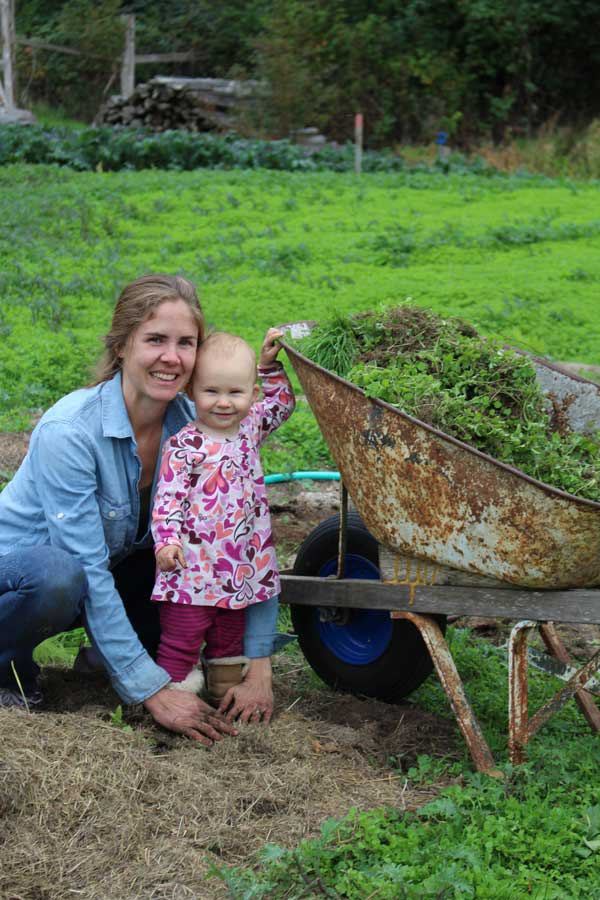Many have the desire to grow their own food but lack the space or camaraderie to do it.
A group of islanders is hoping to change that with the Orcas Community Participatory Agriculture project, a locally based model of agriculture, education and food distribution. The purpose is to empower people to be creators, not just consumers, of the food they eat.
“It’s a collaborative dream,” said Patrick Bennett, one of the founders. “Gardening by yourself is limiting. When you bring in more participants, it deepens the possibilities.”
Land host Kaj Enderlein had leased a portion of his land on Cadden Lane to farmers in past years, but in early 2014, he and a group of friends – Bennett, Caitlin Herlihy, Ken Katz and a rotating cast of food enthusiasts – decided to try something different with the one acre of fenced garden area.
The group created blocks of 25-foot long beds. After initial cover cropping and tractor cultivation, they laid down a sheet mulch – a layered mulching technique using cardboard, composted manure and grass clippings. While it required a great deal of material and labor, by focusing on the soil – the foundation of the project – it saved work down the line.
At the end of the 2014 season, the group realized they had accomplished something worth sharing. Herlihy says the time was right for the program to grow, citing the need for land access, co-education, community, and island-grown food.
The group held a series of meetings to flesh out the next steps. In 2015, they invited six more families to the garden, set up a board of directors, became a state non-profit and joined Island Stewards, an organization that works to support groups dedicated to environmental stewardship.
The OCPA received start up grants from the Orcas Island Garden Club, the Orcas Island Community Foundation, and private donors. The group has also collaborated with other food-centered organizations, including the University of Washington and the Organic Seed Alliance. Herlihy says local and international visitors to the farm have been inspired by the model.
OCPA recently welcomed a visitor from Japan, who took notes and planned to implement the model back home. The group is hopeful it also be an inspiration to others in the San Juans.
“We want to be the fruiting body of a concept,” Herlihy said.
Bennett and Herlihy are the “anchor farmers,” acting as educators and leaders. The participants contribute money and time towards growing their own food. Members also learn to grow food both on a small scale at home and on a larger scale at the farm.
Each garden shift includes a potluck lunch. Participants take home a share of the abundance and any extra food is donated to the Orcas Food Bank or a family in need, or is sold to the Orcas Food Co-op.
They only have room for 10 families and there is currently a waiting list.
Many of the participants have a background in farming and landscaping, but Bennett and Herlihy encourage those will all skills levels to consider getting their hands in the dirt.
“We’ve witnessed garden therapy magic with every person,” Herlihy said. “This is all way more than we anticipated. And we don’t know where it’s going to lead.”
For more information, email Caitlin Herlihy at artofnourishment@gmail.com.
To make a donation, visit the Island Stewards website http://doebay.net/is/.




